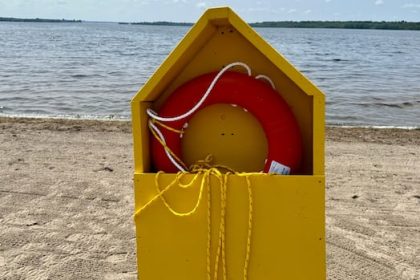Nova Scotia Municipal leaders in Nova Scotia say short-term rentals on platforms like Airbnb have been both a lifeline in recent emergencies and a challenge for limited housing supply. Airbnb rep says N.S system where municipalities can make own regulations is ideal modelHaley Ryan · CBC News · Posted: Nov 07, 2025 6:49 PM EST | Last Updated: 2 hours agoListen to this articleEstimated 5 minutesThe audio version of this article is generated by text-to-speech, a technology based on artificial intelligence.Municipal leaders from Nova Scotia say short-term rentals have brought both benefits and challenges in recent years. (John MacDougall/Getty Images)Municipal leaders in Nova Scotia say short-term rentals on platforms like Airbnb have been both a lifeline in recent emergencies and a challenge for limited housing supply.A representative from Airbnb Canada spoke to local leaders at the Nova Scotia Federation of Municipalities conference in Halifax on Friday.Alex Howell, policy lead with Airbnb Canada, said travellers’ interest in Atlantic Canada and Nova Scotia as a destination is growing.“Let’s … make sure that it’s not just the big cities that are seeing that increase in tourism dollars, but that it’s spread across … the smaller towns, the more rural areas so that everybody’s benefiting,” Howell said in an interview after the event.Alex Howell, policy lead with Airbnb Canada, spoke to a Nova Scotia Federation of Municipalities conference in Halifax on Friday. (Haley Ryan/CBC)Coun. Christina Sappington of the County of Kings said Airbnb’s charitable branch was a huge help supporting people displaced by the Lake George wildfire this October.When hotels in New Minas had to ask evacuees to leave because they were booked up, and with very few other options available in the region, a local team was able to help them move into an Airbnb of their choice, Sappington said. “[It] was amazing and we owe them a great debt of gratitude,” Sappington said during the session.Howell addressed concerns around the impact of short-term rentals on housing supply. She said data shows short-term rentals “don’t have a statistically or meaningful impact on the housing market.”A 2024 Statistics Canada study found that 0.6 per cent of the short-term rentals in Nova Scotia could be used as long-term dwellings, or about 2,987 homes.But Rachel Bailey, deputy mayor of the Town of Lunenburg, said the town has felt the impact of a rise of short-term rentals more keenly.“It’s been problematic,” Bailey said during the session. “And so while it may not statistically have a big impact on the country or the province, it has had an impact on [us].”Established in 1753, Old Town Lunenburg has retained its original layout and overall appearance. (Taxiarchos228)The data analysis platform AirDNA showed about 60 listings in the Town of Lunenburg on Friday, which would make up nearly six per cent of the 1,089 town’s homes using numbers from 2021.Howell said every community is different and Nova Scotia’s system where municipalities can make their own regulations is the ideal model.But, she said the way to address housing is by creating more homes.“Focusing on just regulating short-term rentals is not going to make a dent in the housing crisis either here in Nova Scotia, or unfortunately anywhere else,” Howell said.Halifax brought in short-term rental regulations in 2023, but most Nova Scotia municipalities have not laid out rules yet, including the Town of Lunenburg.Catherine Sanderson, a director with the Short Term Rental Association Nova Scotia, brought her own concerns to a panel of ministers at the conference Thursday.Sanderson said it is unfair to have a tiered system of registration fees where owners in small towns and rural areas pay about $240, while those in the Halifax region with commercial properties pay $2,000.“It’s reinforcing the message that there is a connection between short-term rentals and the housing crisis,” she told reporters outside the meeting. “They’re ignoring the data, basically.”As of April 2024, short-term rentals in Nova Scotia must be registered. Since that time, more than 1,400 properties that could be long-term dwellings left the short-term market. a provincial spokesperson said.But Sanderson said a survey of their members showed that 99 per cent would never turn their unit into a long-term rental, so those 1,400 units are not necessarily a net gain for the market.Housing Minister John White said he still believes the current system is working. He said a property owner who decides to sell their short-term rental because they don’t want to register, or the mortgage is too much of a burden without the Airbnb income, is still a win.“A bed is a bed is a bed, and if the house is sold, somebody is sleeping in it,” White told reporters Thursday.Housing Minister John White speaks with reporters at the Nova Scotia Federation of Municipalities (NSFM) conference in Halifax on Nov.6, 2025. (Haley Ryan/CBC)Howell said she has heard loud and clear that Nova Scotia municipalities are still waiting for a portal that platforms like Airbnb can use to send marketing levies collected on short-term rental stays to the towns and districts where they are owed.A spokesperson with the municipal affairs department said that the province gave $60,000 to the Association of Municipal Administrators Nova Scotia to create that solution.CBC asked the association for a timeline on that new tool, but did not immediately receive a response.MORE TOP STORIES ABOUT THE AUTHORHaley Ryan is the municipal affairs reporter for CBC covering mainland Nova Scotia. Got a story idea? Send an email to haley.ryan@cbc.ca, or reach out on Twitter @hkryan17.
N.S. municipalities talk benefits, challenges of short-term rentals











